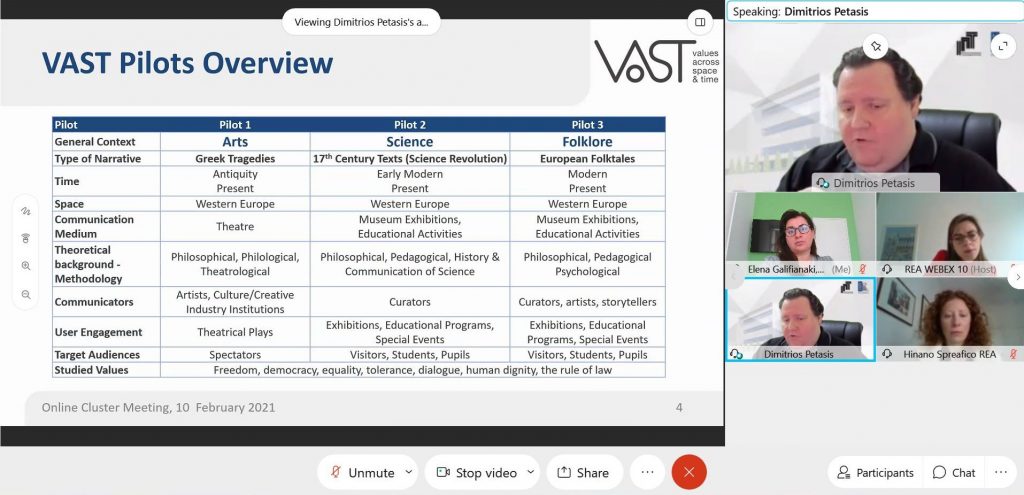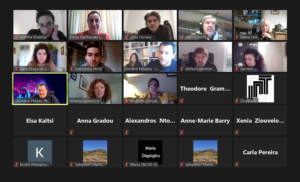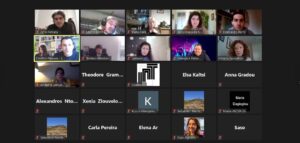In December 2020, a new H2020 European research project named VAST kicked off. The acronym VAST stands for Values Across Space and Time and will study the transformation of the fundamental moral values of the European Union, across space and time. An emphasis will be placed on those values considered fundamental for the formation of sustainable communities and enabling citizens to live well together, such as freedom, democracy, equality, tolerance, dialogue, human dignity, and the rule of law.
The project envisions to bring European values to the forefront by using cutting edge technologies to create a digital platform and a knowledge base which will include narratives from three areas: Theater (focusing on ancient Greek Drama), Science (focusing on Scientific Revolution and natural-philosophy documents of the 17th century) and European Folktales (focusing on folktales/fairytales).
Through advanced techniques and digital tools, researchers will study how the meaning of specific values has been expressed, transformed, and appropriated through time, going back to the stories that helped shape part of the European culture. VAST will examine narratives and user experiences that represent significant moments of European culture and history such as the classical period, and the Scientific Revolution of the 17th century, when the conceptual, methodological and institutional foundations of modern science were first established, to the modern era.
To track European values through space and time, to enable the comprehensive understanding of the evolution of these values, and to study how these values are appropriated by audiences, partners will be employing methodologies and tools such as content analysis, interviews, questionnaires and other material found in press or online, theatrical plays, stories and narratives in video, oral or written forms. The community which will provide this content varies from scholars, researchers, and practitioners to a wider audience, such as artists, curators and storytelling experts, spectators, museum visitors, students, as well as the general public. VAST aims to digitise and preserve stories, findings and experiences as intangible assets linked to iconic/significant theatrical reproductions, and museum educational programs and exhibits, consolidating digital artefacts and providing additional context for analysis and semantic evaluation of digital assets and resources of cultural heritage.
The VAST project is an international collaboration between eight partners from five countries: the National Center for Scientific Research Demokritos (Greece), Università degli Studi di Milano (Italy), National and Kapodistrian University of Athens (Greece), Universidade NOVA de Lisboa – NOVA (Portugal), Fairytale Museum (Cyprus), Semantika (Slovenia), Museo Galileo (Italy) and the Athens & Epidaurus Festival (Greece).
This digitisation and preservation of the European cultural heritage, enhances the understanding of our cultural history, a key driver for the economic, social, environmental growth and sustainable development.
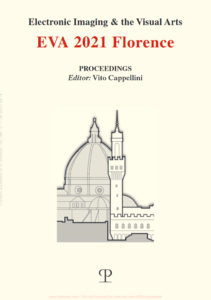
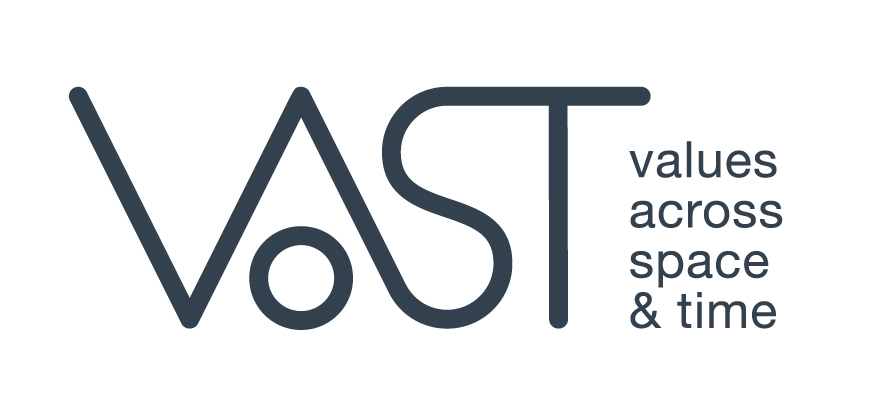
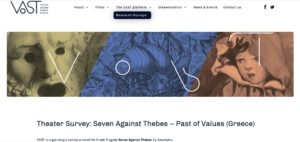
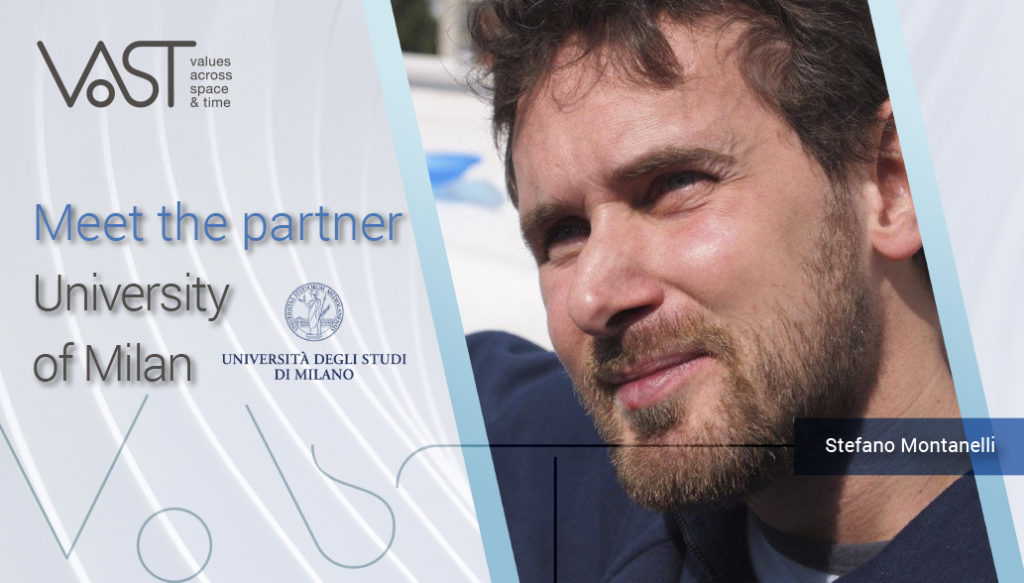
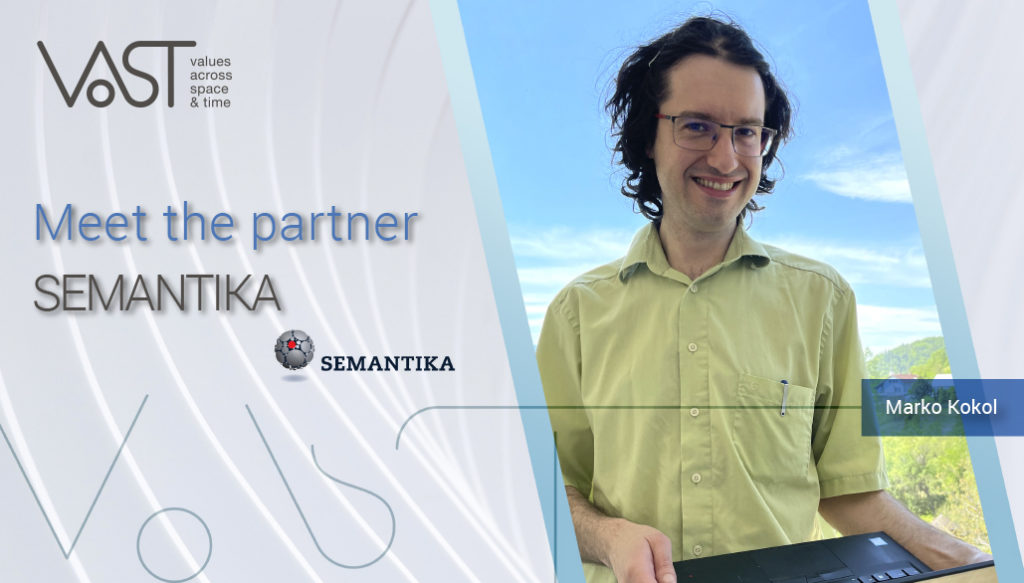
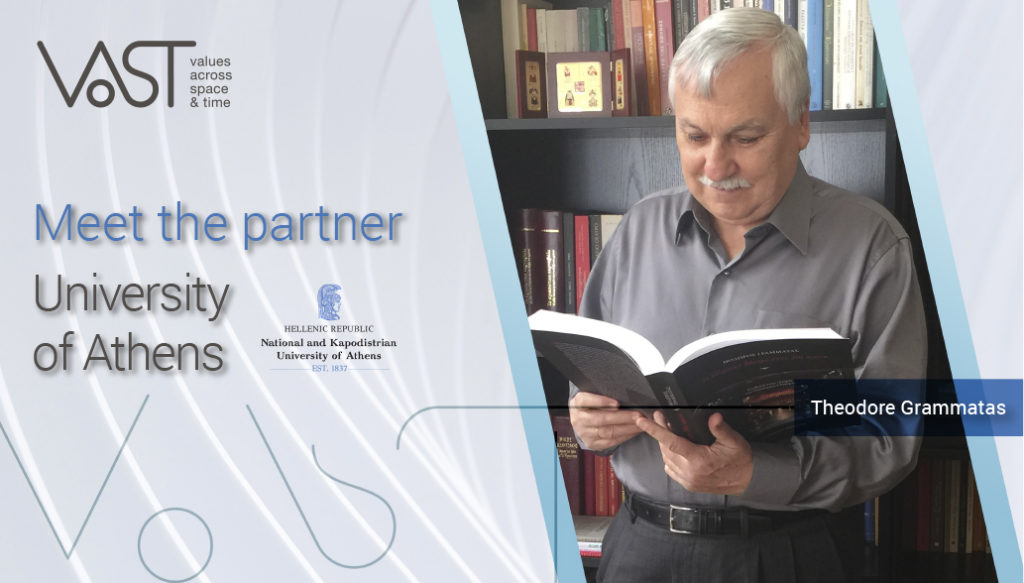
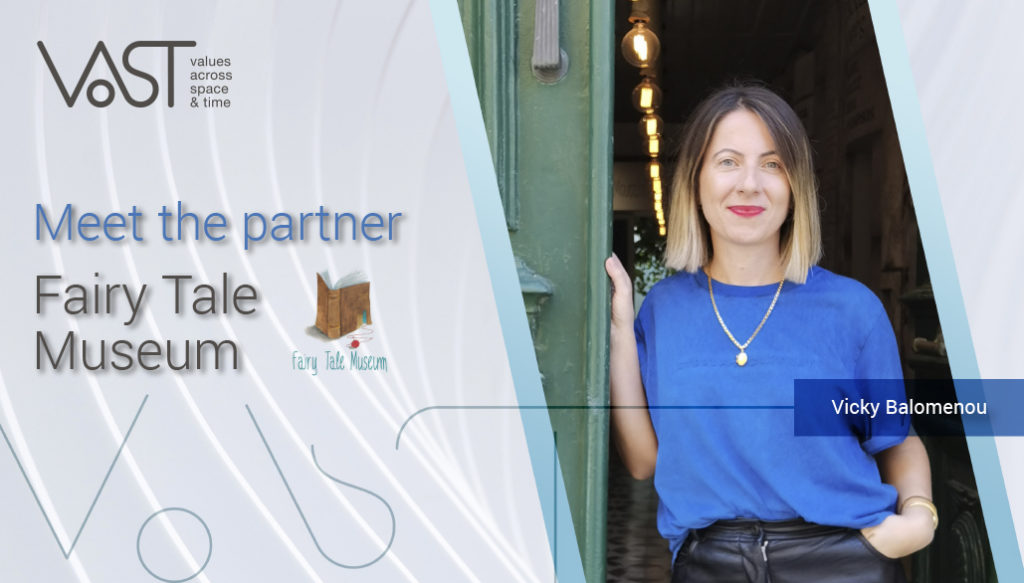
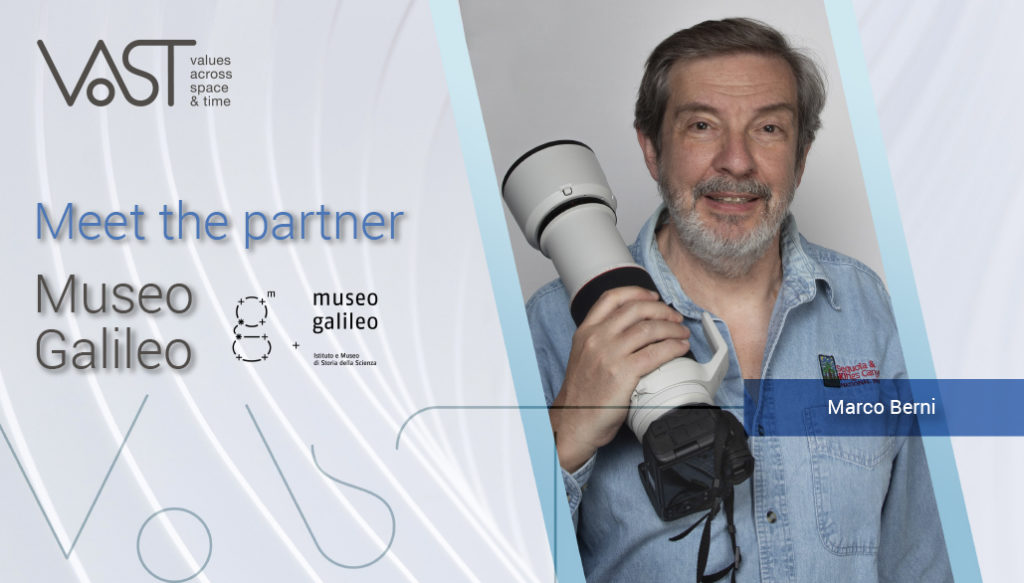
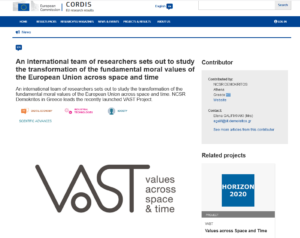
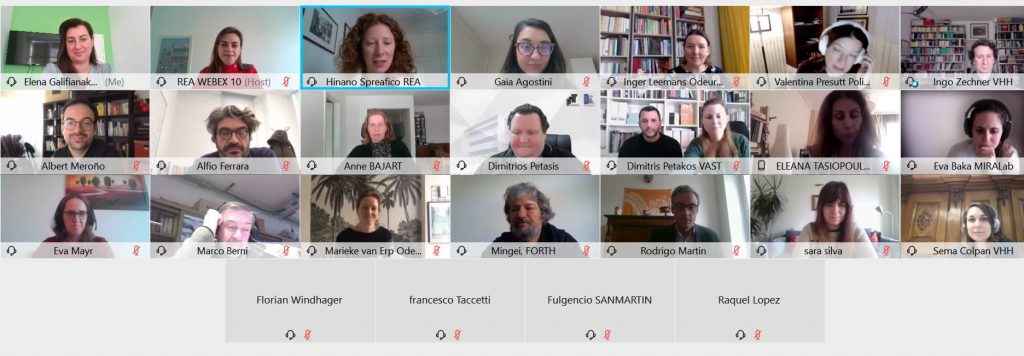 Capture from the first cluster meeting of the sibling projects under the DT TRANSFORMATIONS-12 topic.
Capture from the first cluster meeting of the sibling projects under the DT TRANSFORMATIONS-12 topic.